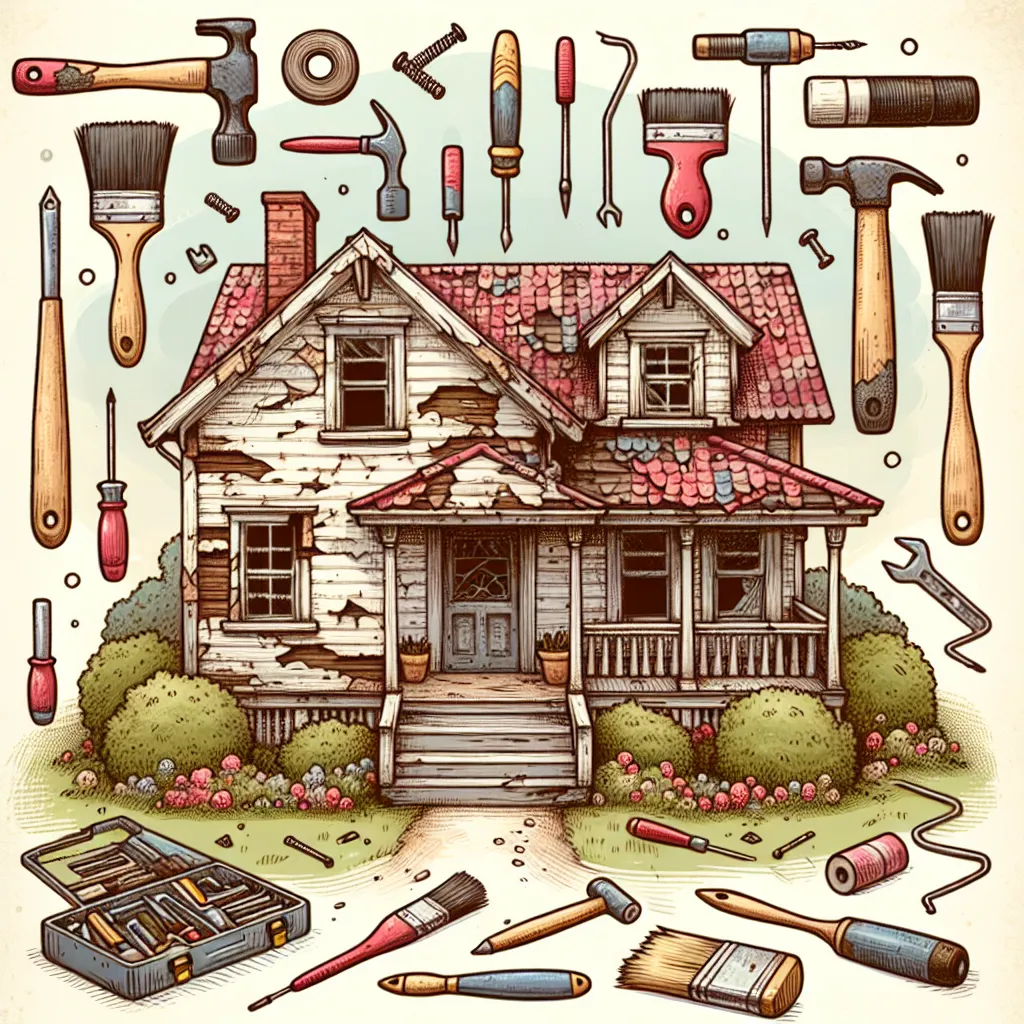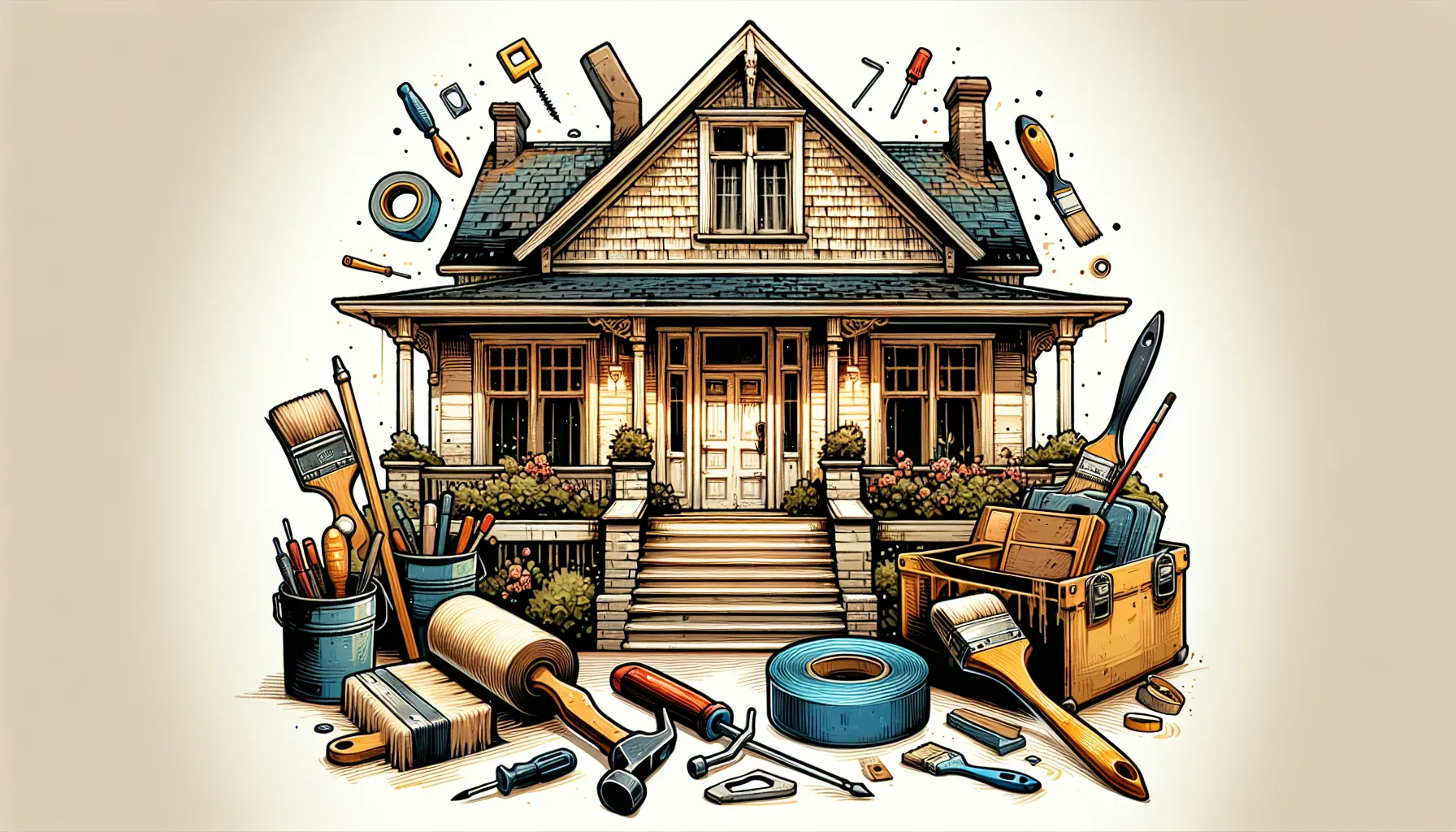Buying a fixer-upper can feel like stepping onto a roller coaster, filled with thrilling highs and unexpected turns. But if you’re prepared, this ride can lead to a truly rewarding destination—a home that’s uniquely yours. With a bit of elbow grease and a vision, you can turn a diamond in the rough into your dream home. But first, let’s delve into the essentials of buying a fixer-upper house, making sure you’re ready for the challenge.

What is a Fixer Upper?
A fixer-upper is a property that requires significant renovation before it can become a comfortable living space. This can range from minor cosmetic updates to major structural changes. The allure of purchasing a fixer-upper lies in its affordability and the potential for customization. But, beware—these homes can also hide costly surprises!
The Pros of Buying a Fixer Upper
- Affordability: Typically, fixer-uppers are priced lower than move-in-ready homes, allowing you to enter neighborhoods that might otherwise be out of reach.
- Customization: You have the freedom to design and renovate according to your taste, creating a home that reflects your personality.
- Investment Potential: With the right improvements, a fixer-upper can significantly increase in value, offering a substantial return on investment.
The Cons of Buying a Fixer Upper
- Hidden Costs: Renovations often uncover unexpected issues that can drive up costs.
- Time-Consuming: Renovating a home can be a lengthy process, requiring patience and dedication.
- Stress: Managing a renovation project can be stressful, especially if you’re new to home improvement.
How to Spot a Fixer Upper Worth Buying
When hunting for a fixer-upper, location is paramount. You can alter the house, but not its surroundings. Look for homes in desirable or up-and-coming neighborhoods. A good fixer-upper should have a solid foundation and potential for improvement without requiring a complete teardown.
Key Features to Consider:
- Structural Integrity: Ensure the foundation, roof, and walls are in good condition.
- Location: Proximity to amenities, schools, and transport can boost future resale value.
- Layout: Opt for a functional layout that suits your lifestyle to minimize costly structural changes.
Budgeting for the Unexpected
Creating a budget is crucial when buying a fixer-upper. Allocate funds for known renovations and an additional 20% cushion for unexpected expenses. Consider the cost of permits, materials, and labor. Remember, it’s better to overestimate than to find yourself short on cash midway through renovations.
Sample Renovation Budget:
| Item | Estimated Cost |
|---|---|
| Permits | $500 – $2,000 |
| Materials | $5,000 – $20,000 |
| Labor | $10,000 – $40,000 |
| Contingency | 20% of total |
Financing Your Fixer Upper
Securing the right financing is pivotal. Several mortgage options cater to fixer-upper buyers, allowing you to fund both the purchase and renovation in a single loan. Explore options like the FHA 203(k) loan, Fannie Mae HomeStyle Renovation loan, or a VA renovation loan if you’re eligible.
Working with the Right Contractors
Hiring the right contractors can make or break your renovation. Seek recommendations, check references, and ensure they’re licensed and insured. A reliable contractor will provide a detailed schedule and budget, helping to keep your project on track.
Checklist for Hiring Contractors:
- Verify licenses and insurance
- Check past project reviews
- Get multiple bids and compare
- Set clear timelines and expectations
Living in a Fixer Upper
Living in a construction zone isn’t for everyone. If possible, tackle major renovations before moving in. If you must live onsite, prioritize creating a livable space first, like a bedroom and bathroom, to maintain some normalcy during the chaos.
Conclusion
Buying a fixer-upper can be a daunting yet rewarding endeavor. With careful planning, budgeting, and the right team, you can transform a rundown property into a beautiful home. Remember, patience and flexibility are your best allies in this journey. And when in doubt, lean on technology like AnySqft’s AI-driven platform to streamline your property search and renovation plans. Your dream home is just a few renovations away!
How to Buy a Fixer Upper House
Buying a fixer-upper can be a rewarding adventure! Here’s a quick guide to get started:
1. Find the Right Location
- Research neighborhoods to ensure potential for value appreciation.
- Look for homes needing cosmetic updates rather than structural repairs.
2. Budget Wisely
- Estimate renovation costs and add a 20% cushion for unexpected expenses.
3. Secure Financing
- Explore renovation loans like FHA 203(k) or Fannie Mae HomeStyle.
4. Hire Reliable Contractors
- Check references and compare bids.
5. Use AnySqft
- Utilize AnySqft to streamline your property search and renovation planning.
Transform your vision into reality with AnySqft today!
